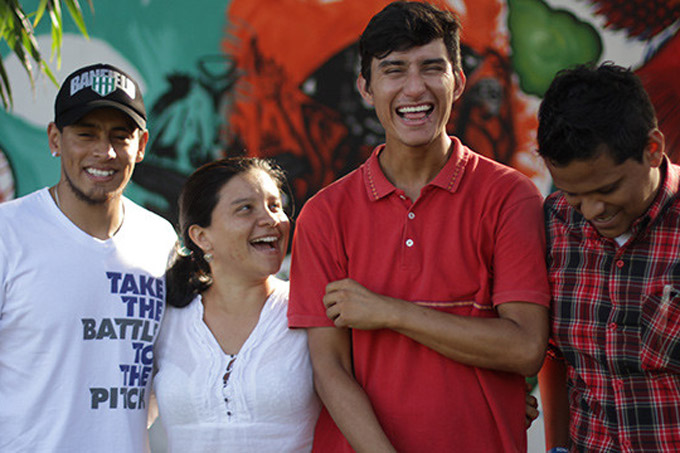By Dr Rachele Tardi, Light for the World Representative to the UN.
World Youth Skills Day was established last November by the United Nations and is being celebrated for the first time on July 15, 2015. It is a response to the critical need for skills to contribute to the reduction of unemployment and underemployment among the youth across the globe. It reflects the UN’s overall commitment to eradicating poverty (Post-2015 agenda framework and Third Conference on Financing for Development) and to promoting “inclusive and sustainable economic growth, full and productive employment and decent work for all” (Sustainable Development Goal 8).
It is an excellent initiative, but skill development should also include skills in participation and advocacy. These will allow young people to be actors in creating skill development opportunities and in reducing unemployment rather than just being beneficiaries. In turn, this will contribute to achieving social and economic justice and to the democratization of the economic system.
This week I met Cheick Faycal Traore, a young man under 30, who was appointed in Burkina Faso in May 2015 as the Special Envoy for coordinating the participation of young people in implementing the post-2015 agenda. This is a rare example of a government providing space for young people to realize their participation rights and practice their participation skills.
Examples like this are crucial because participation skills are the skills that young people need, together with the knowledge of their own rights, to play an active part, for example, in economic decision-making. They are the skills that enable them to advocate and hold their governments accountable for allocating public domestic resources for relevant skill building, for the creation of meaningful employment opportunities, for regulation of the private sector, now a key driver in financing for development, for anti-discrimination laws and policies and for reliable, internationally comparable data disaggregated by sex, age and disability.
Participation skills are not traditionally considered marketable skills but they need to be promoted as such. They are key life and political skills, fundamental for creating lasting and positive impact both in local and global economies. Not all marketable skills produce power shifts, yet participation skills are all about shifting power, changing the game.
Cheick told me that unemployment is a major issue in Burkina Faso and that opportunities for skill development are limited. Even when they are available, young people are often not aware of them because they have limited information. He highlighted the need for a skills development program to take diversity into consideration. Youth with disabilities, for example, are more likely to be unemployed. The International Labour Organization (ILO) reports that when they are employed they are more likely to be among the working poor, as they are frequently in low-paid jobs with poor career prospects and poor working conditions.
This is why investing in skill building for youth with disabilities is essential. As for self-employment, many persons with disabilities who would like to start their own businesses lack the necessary skills and are challenged by unfriendly microfinance institutions, which often refuse to give them loans. They are often excluded from participatory mechanisms and initiatives.
To address some of these challenges, the Ethiopian Centre for Disability and Development is running a three-year project called EmployAble, which ensures that persons with disabilities are included in technical vocational education and training (TVET) and promotes the employment of persons with disabilities in private sector companies. The EmployAble project has already been successfully implemented in Kenya and Rwanda, bridging the gap between skill building and employment for youth with disabilities.
Today, at the Third International Conference on Financing for Development, Melaku Tekle, the coordinator of the Employable project and a young person with a disability himself, presented it during the side event organized by the Office of the Secretary-General’s Envoy on Youth, Mr Ahmad Alhendawi. Melaku Tekle spoke on behalf the International Disability Alliance (IDA) and the International Disability and Development Consortium (IDDC).
Inclusive and accessible skills development, with an emphasis on participation, can make a real difference to how development is implemented. Young people’s participation must be supported in order to contribute to inclusive growth, sustainable development and social and economic justice.

